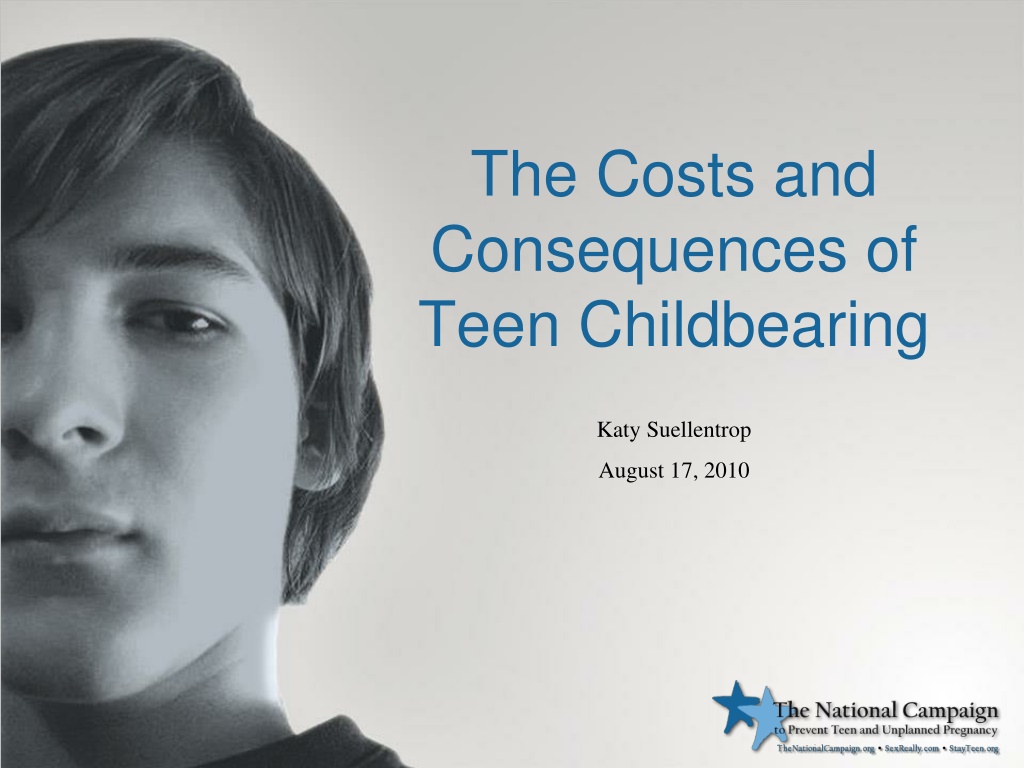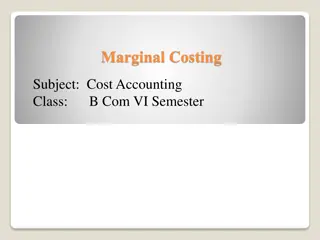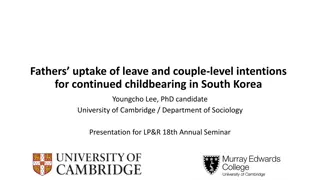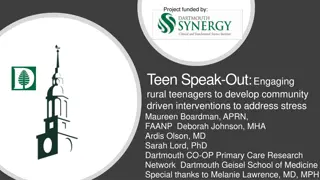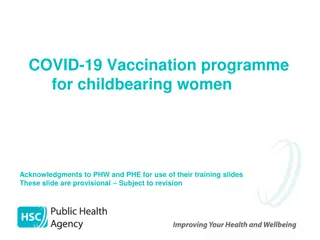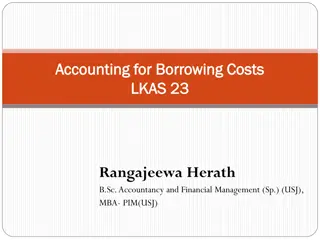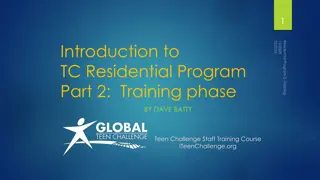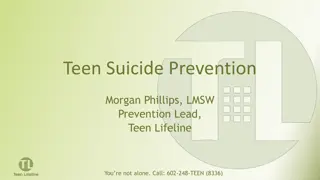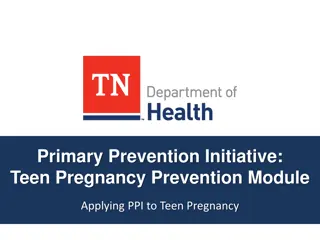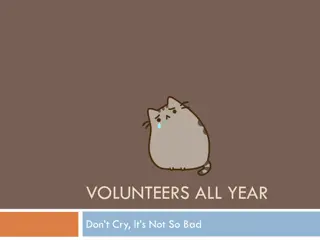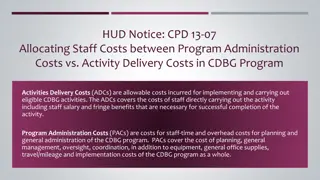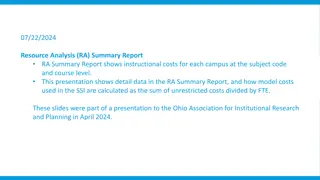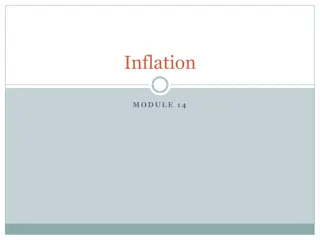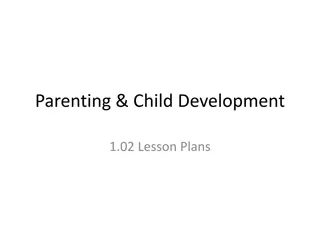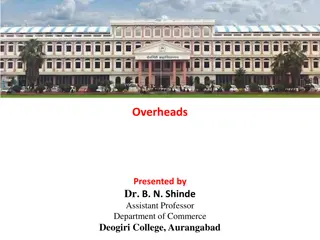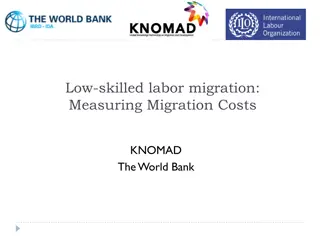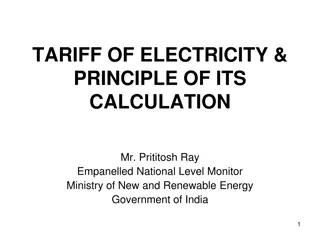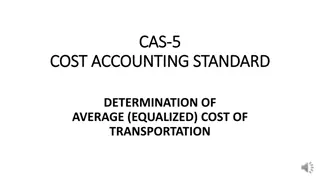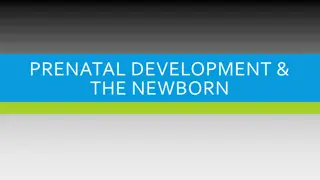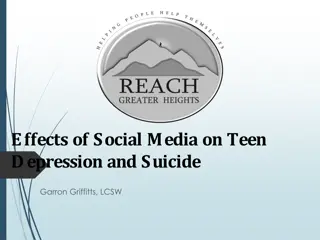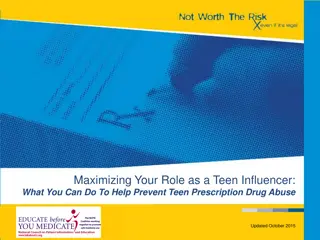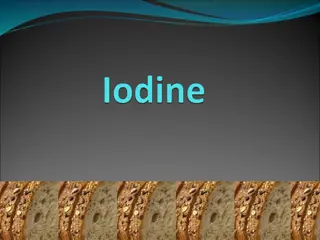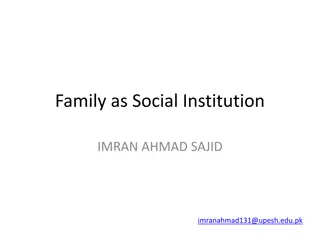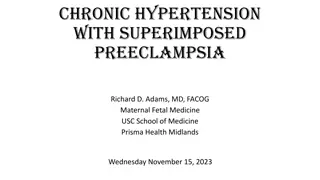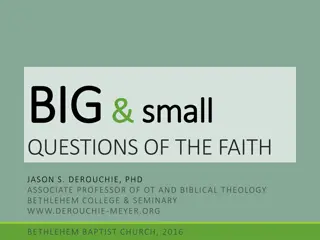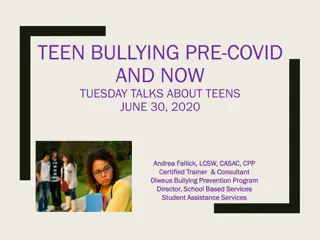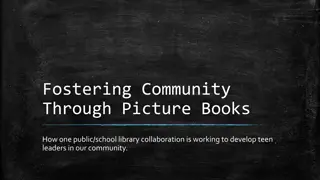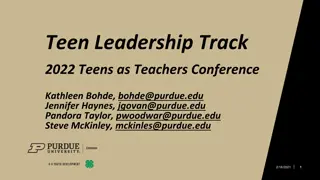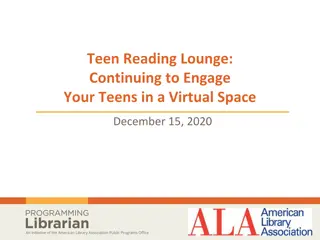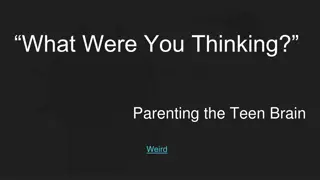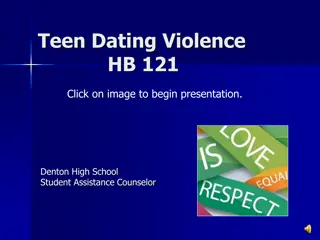Impact of Teen Childbearing: Costs, Consequences, and Solutions
Teen childbearing has far-reaching effects on individuals, families, and society. From increased risks for children in terms of education, health, and poverty, to the long-term societal implications, the data presented here underscores the importance of addressing this issue. Solutions are crucial to breaking the cycle of poverty and improving opportunities for young parents and their children.
Uploaded on Oct 06, 2024 | 0 Views
Download Presentation

Please find below an Image/Link to download the presentation.
The content on the website is provided AS IS for your information and personal use only. It may not be sold, licensed, or shared on other websites without obtaining consent from the author. Download presentation by click this link. If you encounter any issues during the download, it is possible that the publisher has removed the file from their server.
E N D
Presentation Transcript
The Costs and Consequences of Teen Childbearing Katy Suellentrop August 17, 2010
Still Work to Do Three in ten girls get pregnant once before they turn 20 One-quarter of teen parents have a second child before they turn 20 Disparities (over 50% of Latinas and African Americans) Higher teen pregnancy and birth rates than comparable countries
Consequences for Children Compared to children born to older mothers (20-21 years old), children born to teen moms are more likely to: drop out of high school. become teen parents. use Medicaid and CHIP. experience abuse/neglect. enter the foster care system. end up in prison (sons). be raised in single parent families. Source: Hoffman, S.D., (2006) By the Numbers: The Public Costs of Adolescent Childbearing. The National Campaign to Prevent Teen Pregnancy: Washington, DC.
Consequences for Children Lower scores on measures of kindergarten readiness Lower vocabulary, math, and reading scores Greater risk of being born at low birth weight Source: Terry-Humen, E., Manlove, J., and Moore, KA., (2005). Playing Catch-Up: How Children Born to Teen Mothers Fare, The National Campaign to Prevent Teen Pregnancy: Washington, DC
Connection with Poverty A child born to a teen mother who has not finished high school and is not married is nine times more likely to be poor than a child born to an adult who has finished high school and is married. What if the national teen birth rate had not declined 30% between 1991 and 2002? In 2002, 460,000 more young children would have been living in poverty. Source: Analysis of U.S. Congress, Ways and Means Committee-Democrats (2004). Steep Decline in Teen Birth Rate Significantly Responsible for Reducing Child Poverty and Single-Parent Families. (Issue Brief, April 23, 2004). Washington, DC.
Consequences for Education Overall 34% of women who have a birth as a teen do not attain a diploma or GED by age 22 compared to 6% of women who do not have a teen birth Percent of Teens Diploma/GED Attainment Among Teen Mothers Before Age 22, By Age of Birth 100% 27% 80% 43% This bar chart shows the percent of teen mothers who attain a diploma or GED by age 22, depending on their age at the birth of this child; 43% of teens who gave birth before age 18 had neither compared to 27% of teens who gave birth at age 18 or 19 13% 60% 19% 40% Neither GED Diploma 60% 20% 38% 0% Birth Before Age 18 Birth At Age 18-19 Age at Birth Source: Perper, K., Peterson, K., & Manlove, J., Diploma Attachment Among Teen Mothers, 2010. Child Trends, Fact Sheet: Washington, DC. Retrieved March, 2010 from http://www.childtrends.org/Files//Child_Trends- 2010_01_22_FS_DiplomaAttainment.pdf
Connection with Child Welfare Almost one-half of girls in foster care become pregnant by age 19. Compared to mothers age 20-21, young teen mothers were 2.2 times more likely have a child placed in foster care during the first 5 years after a birth. Delaying age of birth from 17 or earlier to age 20-21 would reduce the overall foster care placement rate by 8% percent. Source: Hoffman, S.D., (2006) By the Numbers: The Public Costs of Adolescent Childbearing. The National Campaign to Prevent Teen Pregnancy: Washington, DC.
Methods National data from Kids Having Kids (Maynard 1996) and Kids Having Kids: Revised Edition (Maynard and Hoffman) Measure costs over the first 15 years following a birth assume a steady state analysis Annual costs incurred in 2004
Methods (cont.) State costs are derived from national costs Account for the state s share of teen births, the per client cost (relative to the national average), and utilization rates (relative to the national average) State specific income and sales tax structure
National Costs Most of the costs of teen childbearing are associated with negative consequences for the children of teen mothers and include: $1.9 billion for increased public health care costs $2.3 billion for increased child welfare costs $2.1 billion for increased costs for state prison systems (among adult sons of teen mothers) $2.9 billion in lost tax revenue due to lower taxes paid by the children of teen mothers over their own adult lifetimes. Source: Hoffman, S.D., (2006) By the Numbers: The Public Costs of Adolescent Childbearing. The National Campaign to Prevent Teen Pregnancy: Washington, DC.
National Savings The one-third decline in the nation s teen birth rate between 1991 and 2004 resulted in saving taxpayers an estimated $6.7 billion in 2004 alone.
State Specific Costs Average cost associated with a child born to a teen mother ranges from $7,836 in Vermont to $2,997 in Texas. Cost savings in 2004 range from $5 million in Wyoming to $1.1 Billion in CA. More detailed information available in the report and at http://www.thenationalcampaign.org/costs
Challenges and Limitations Distribution of Teens by Family Income (at Age 12-19, Before the Birth) for Teens With/Without a Child as a Percent of Poverty How to attribute poorer outcomes circumstances before or after the birth The bar chart shows the distribution of teens by family income as a percent of poverty for teens who had a teen birth and those who didn t; 28% of teens who had a birth as a teen were living at <100% of the federal poverty threshold compared to 16% of all teens 100% Percent of Teens 80% 41% 61% >=200% Poverty 100-199% Poverty <100% Poverty 60% 31% 40% 23% 20% 28% 16% 0% Teens Who Ever Had a Teen Birth All Teens Teens
Reduction of early parenthood will not eliminate the powerful effects of growing up in poverty and disadvantage. But it represents a potentially productive strategy for widening the pathways out of poverty, or at the very least, not compounding the handicaps imposed by social disadvantage. Source: Hoffman, S.D., (1998) Teenage Childbearing Is Not So Bad After All Or Is It? A Review of the Literature. Family Planning Perspectives, 30(5): 236-239;243.
What can be Done Invest in evidence-based programs Intensify efforts with vulnerable youth/populations with high rates. Enlist parents, media, faith community, business, judges, and others to help.
Thank-you! For more information: Visit our website: http://www.TheNationalCampaign.org Sign up for e-gram updates!
